Discover the Women of the Hall
These are the Inductees of the National Women’s Hall of Fame. Select any of the women to discover their stories and learn how they have influenced other women and this country.

Mary Baker Eddy
The only American woman to found a lasting American-based religion, the Church of Christ (Scientist). Her personal struggles led her to believe in a system of prayer-based healing. In 1908, two years before her death at 89 she started The Christian Science Monitor.

Marian Wright Edelman
Attorney and civil rights advocate who founded the Children’s Defense Fund, the nation’s strongest advocacy group for children. A passionate champion for youth, Edelman’s organization works on health care and assistance for homeless children.
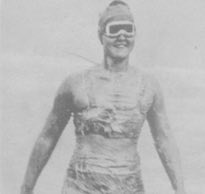
Gertrude "Trudy" Ederle
In 1926, Ederle became the first woman to swim the English Channel, setting a new time record that would stand for the next 35 years. Ederle’s accomplishment was a milestone as it expanded opportunity for other women in athletics.
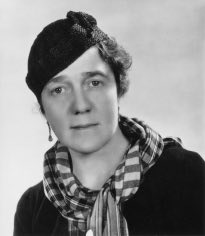
Dorothy Harrison Eustis
A philanthropist, Dorothy Harrison Eustis combined her love of animals and her passion for helping others to co-found the nation’s first dog guide school, The Seeing Eye. In 1921, Eustis began her career in Switzerland, breeding German shepherds for civic duty. She was later contacted by Morris Frank, a blind American man seeking a guide dog. After bringing Frank to Switzerland and providing him with a dog, Eustis returned to the United States, and in 1929, they established The Seeing Eye to help blind people achieve greater independence, dignity and self-confidence through the use of Seeing Eye dogs. To date, The Seeing Eye has bred and trained 15,000 dogs to assist nearly 8,000 men and women.
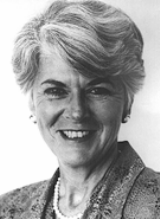
Geraldine Ferraro
First woman nominated by a major political party as a candidate for Vice President of the United States. Chosen to serve as the running mate of Democratic Presidential Nominee Walter Mondale in 1984, Ferraro had been an Assistant District Attorney in New York and later served in the United States Congress.
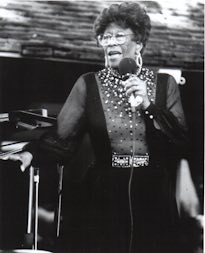
Ella Fitzgerald
World-renowned jazz singer and the first pop musician awarded the Lincoln Center Medallion. At 15, she entered a talent contest to dance. Her knees shook so much during the contest, she chose to sing instead and was discovered by a Chick Webb band member.

Mary Baker Eddy
The only American woman to found a lasting American-based religion, the Church of Christ (Scientist). Her personal struggles led her to believe in a system of prayer-based healing. In 1908, two years before her death at 89 she started The Christian Science Monitor.

Marian Wright Edelman
Attorney and civil rights advocate who founded the Children’s Defense Fund, the nation’s strongest advocacy group for children. A passionate champion for youth, Edelman’s organization works on health care and assistance for homeless children.

Gertrude "Trudy" Ederle
In 1926, Ederle became the first woman to swim the English Channel, setting a new time record that would stand for the next 35 years. Ederle’s accomplishment was a milestone as it expanded opportunity for other women in athletics.

Dorothy Harrison Eustis
A philanthropist, Dorothy Harrison Eustis combined her love of animals and her passion for helping others to co-found the nation’s first dog guide school, The Seeing Eye. In 1921, Eustis began her career in Switzerland, breeding German shepherds for civic duty. She was later contacted by Morris Frank, a blind American man seeking a guide dog. After bringing Frank to Switzerland and providing him with a dog, Eustis returned to the United States, and in 1929, they established The Seeing Eye to help blind people achieve greater independence, dignity and self-confidence through the use of Seeing Eye dogs. To date, The Seeing Eye has bred and trained 15,000 dogs to assist nearly 8,000 men and women.

Geraldine Ferraro
First woman nominated by a major political party as a candidate for Vice President of the United States. Chosen to serve as the running mate of Democratic Presidential Nominee Walter Mondale in 1984, Ferraro had been an Assistant District Attorney in New York and later served in the United States Congress.

Ella Fitzgerald
World-renowned jazz singer and the first pop musician awarded the Lincoln Center Medallion. At 15, she entered a talent contest to dance. Her knees shook so much during the contest, she chose to sing instead and was discovered by a Chick Webb band member.

Betty Ford
A groundbreaking First Lady, Betty Ford is often remembered for her candor in addressing the controversial issues of her time. Shortly after she became the First Lady of the United States in 1974, Ford was diagnosed with breast cancer and underwent a radical mastectomy. Rather than suppressing the diagnosis, Ford courageously shared her personal story and inspired countless women across the nation to get breast examinations. In 1978, following a family intervention, Ford underwent successful treatment for addiction to alcohol and prescription drugs. She again used her story to raise public awareness of addiction, and in 1982, she co-founded the Betty Ford Center to treat victims of alcohol and chemical dependency. Ford was awarded the Presidential Medal of Freedom in 1991 and the Congressional Gold Medal, with President Gerald R. Ford, in 1999.
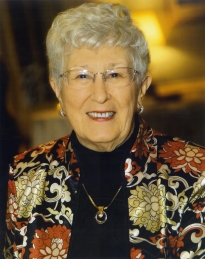
Loretta C. Ford
An internationally renowned nursing leader, Dr. Loretta C. Ford has devoted her career to practice, education, research, consultation and the delivery of health services. Dr. Ford is best known for co-founding the nurse practitioner model through her studies on the nurse’s expanded scope of practice in public health nursing. In 1972, Dr. Ford became the founding dean of the University of Rochester School of Nursing, where she implemented the unification model. Dr. Ford is the author of more than 100 publications and has served as a consultant and lecturer to multiple organizations and universities.
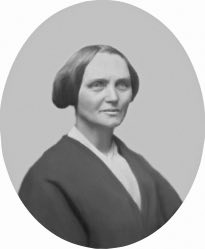
Abby Kelley Foster
A major figure in the national anti-slavery and women’s rights movements, Abby Kelley Foster is remembered for her roles as a lecturer, fundraiser, recruiter and organizer. In 1850, Foster helped develop plans for the National Woman’s Rights Convention in Massachusetts, and later, in 1868, she was among the organizers of the founding convention of the New England Woman Suffrage Association. During her lifetime, Foster worked extensively with the American Anti-Slavery Society, where she held several different positions within the organization. Foster worked tirelessly for the ratification of the fourteenth and fifteenth amendments and helped lay the groundwork for the nineteenth amendment to the U.S. Constitution.
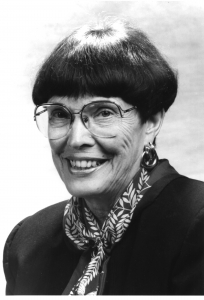
Helen Murray Free
A pioneering chemist, Helen Murray Free conducted research that revolutionized diagnostic testing in the laboratory and at home. Free is the co-developer of Clinistix, the first dip-and-read diagnostic test strips for monitoring glucose in urine. Along with her husband, Alfred Free, she also developed additional strips for testing levels of key indicators for other diseases. Today, dip-and-read strips make testing for diabetes, pregnancy, and other conditions available in underdeveloped regions of the United States and in foreign countries. Free is the recipient of numerous awards, including the National Medal of Technology and Innovation and the American Chemical Society’s 66th National Historic Chemical Landmark designation (2010).

Betty Friedan
Reshaped American attitudes toward women’s lives and rights through decades of social activism, strategic thinking and powerful writing. Her book The Feminine Mystique (1963) triggered the contemporary women’s movement. Her latest work is the best-selling The Fountain of Age.
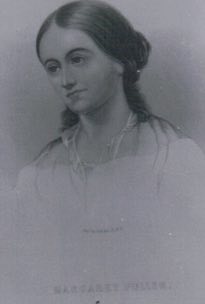
Margaret Fuller
Literary critic, editor, teacher and author. Fuller’s early writings inspired leaders of women’s rights. She was editor of the The Dial, a Transcendental journal, and she advocated liberation for all humanity.

Betty Ford
A groundbreaking First Lady, Betty Ford is often remembered for her candor in addressing the controversial issues of her time. Shortly after she became the First Lady of the United States in 1974, Ford was diagnosed with breast cancer and underwent a radical mastectomy. Rather than suppressing the diagnosis, Ford courageously shared her personal story and inspired countless women across the nation to get breast examinations. In 1978, following a family intervention, Ford underwent successful treatment for addiction to alcohol and prescription drugs. She again used her story to raise public awareness of addiction, and in 1982, she co-founded the Betty Ford Center to treat victims of alcohol and chemical dependency. Ford was awarded the Presidential Medal of Freedom in 1991 and the Congressional Gold Medal, with President Gerald R. Ford, in 1999.

Loretta C. Ford
An internationally renowned nursing leader, Dr. Loretta C. Ford has devoted her career to practice, education, research, consultation and the delivery of health services. Dr. Ford is best known for co-founding the nurse practitioner model through her studies on the nurse’s expanded scope of practice in public health nursing. In 1972, Dr. Ford became the founding dean of the University of Rochester School of Nursing, where she implemented the unification model. Dr. Ford is the author of more than 100 publications and has served as a consultant and lecturer to multiple organizations and universities.

Abby Kelley Foster
A major figure in the national anti-slavery and women’s rights movements, Abby Kelley Foster is remembered for her roles as a lecturer, fundraiser, recruiter and organizer. In 1850, Foster helped develop plans for the National Woman’s Rights Convention in Massachusetts, and later, in 1868, she was among the organizers of the founding convention of the New England Woman Suffrage Association. During her lifetime, Foster worked extensively with the American Anti-Slavery Society, where she held several different positions within the organization. Foster worked tirelessly for the ratification of the fourteenth and fifteenth amendments and helped lay the groundwork for the nineteenth amendment to the U.S. Constitution.

Helen Murray Free
A pioneering chemist, Helen Murray Free conducted research that revolutionized diagnostic testing in the laboratory and at home. Free is the co-developer of Clinistix, the first dip-and-read diagnostic test strips for monitoring glucose in urine. Along with her husband, Alfred Free, she also developed additional strips for testing levels of key indicators for other diseases. Today, dip-and-read strips make testing for diabetes, pregnancy, and other conditions available in underdeveloped regions of the United States and in foreign countries. Free is the recipient of numerous awards, including the National Medal of Technology and Innovation and the American Chemical Society’s 66th National Historic Chemical Landmark designation (2010).

Betty Friedan
Reshaped American attitudes toward women’s lives and rights through decades of social activism, strategic thinking and powerful writing. Her book The Feminine Mystique (1963) triggered the contemporary women’s movement. Her latest work is the best-selling The Fountain of Age.

Margaret Fuller
Literary critic, editor, teacher and author. Fuller’s early writings inspired leaders of women’s rights. She was editor of the The Dial, a Transcendental journal, and she advocated liberation for all humanity.
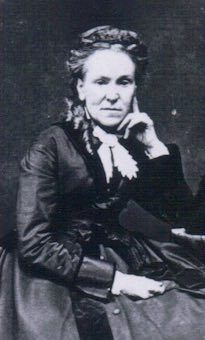
Matilda Joslyn Gage
Best known as the co-author (with Elizabeth Cady Stanton and Susan B. Anthony) of The History of Women’s Suffrage. She served in the National Women’s Suffrage Association and helped form suffrage groups in order to gain the right to vote for women.
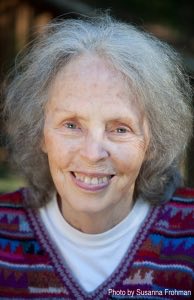
Ina May Gaskin
A certified professional midwife who has attended more than 1,200 births, Ina May Gaskin is known as the “mother of authentic midwifery.” In 1971, Gaskin founded the Farm Midwifery Center in rural Tennessee and effectively demonstrated that home birth midwives could be well prepared for their profession without first being educated as obstetric nurses. During a stay in Guatemala in 1976, Gaskin learned a technique for preventing and resolving shoulder dystocia during birth. After using the method with great success, Gaskin began to teach it and publish articles about the method. Now referred to as the Gaskin maneuver, it is the first obstetrical maneuver to be named after a midwife. Gaskin is the author of four books, including Spiritual Midwifery (1975), the first text written by a midwife published in the United States.
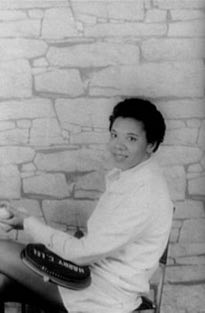
Althea Gibson
In 1957 Althea Gibson became the first African American tennis player to win at Wimbledon and Forest Hills. Her influence as a role model for aspiring athletes has been profound.
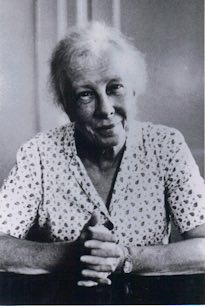
Lillian Moller Gilbreth
Industrial engineer and expert in motion studies, Gilbreth was a pioneer in the relationship between engineering and human relations. She convinced managers that worker-efficiency is the result of the quality of the work environment.

Charlotte Perkins Gilman
Philosopher, writer, educator and activist who demanded equal treatment for women as the best means to advance society’s progress. Her landmark Women and Economics (1898) argued that until women gained economic independence, real autonomy and equity could not be achieved.

Ruth Bader Ginsburg
Supreme Court Justice Ruth Bader Ginsburg has spent her career working to eliminate gender-based stereotyping and discrimination. Justice Ginsburg is the second woman appointed to the United States Supreme Court in its 212 year history.

Matilda Joslyn Gage
Best known as the co-author (with Elizabeth Cady Stanton and Susan B. Anthony) of The History of Women’s Suffrage. She served in the National Women’s Suffrage Association and helped form suffrage groups in order to gain the right to vote for women.

Ina May Gaskin
A certified professional midwife who has attended more than 1,200 births, Ina May Gaskin is known as the “mother of authentic midwifery.” In 1971, Gaskin founded the Farm Midwifery Center in rural Tennessee and effectively demonstrated that home birth midwives could be well prepared for their profession without first being educated as obstetric nurses. During a stay in Guatemala in 1976, Gaskin learned a technique for preventing and resolving shoulder dystocia during birth. After using the method with great success, Gaskin began to teach it and publish articles about the method. Now referred to as the Gaskin maneuver, it is the first obstetrical maneuver to be named after a midwife. Gaskin is the author of four books, including Spiritual Midwifery (1975), the first text written by a midwife published in the United States.

Althea Gibson
In 1957 Althea Gibson became the first African American tennis player to win at Wimbledon and Forest Hills. Her influence as a role model for aspiring athletes has been profound.

Lillian Moller Gilbreth
Industrial engineer and expert in motion studies, Gilbreth was a pioneer in the relationship between engineering and human relations. She convinced managers that worker-efficiency is the result of the quality of the work environment.

Charlotte Perkins Gilman
Philosopher, writer, educator and activist who demanded equal treatment for women as the best means to advance society’s progress. Her landmark Women and Economics (1898) argued that until women gained economic independence, real autonomy and equity could not be achieved.

Ruth Bader Ginsburg
Supreme Court Justice Ruth Bader Ginsburg has spent her career working to eliminate gender-based stereotyping and discrimination. Justice Ginsburg is the second woman appointed to the United States Supreme Court in its 212 year history.
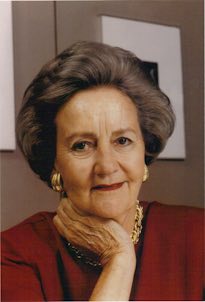
Katharine Graham
As publisher and then Board Chair and CEO of the Washington Post, Graham became one of the most influential women in the country. Her courageous decisions to publish the Pentagon Papers and to proceed with the Watergate investigation earned her a reputation as a daring and thorough journalist, willing to take risks in order to give the American people full access to important information.
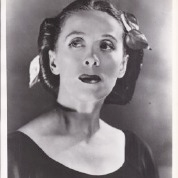
Martha Graham
One of the greatest artists of the 20th century, she created a new dance language. Named Dancer of the Century, she was the first dancer to perform at the White House and to act as a cultural ambassador abroad.
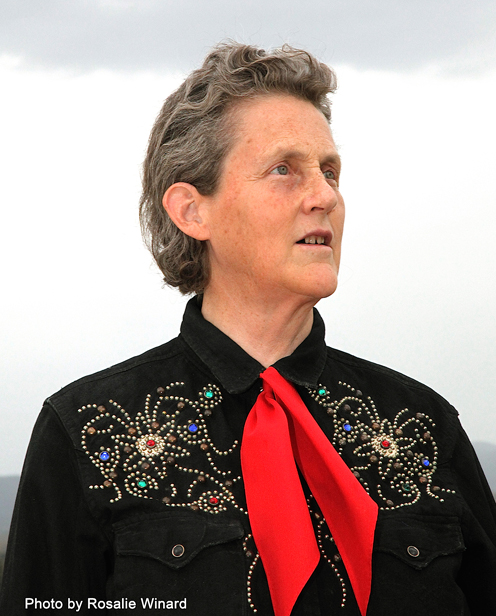
Temple Grandin
An animal sciences innovator and champion of farm animal welfare whose masterly designs for livestock handling systems transformed the industry and are used worldwide today. Her life and work have “revolutionized the study of autism,” as she had applied her insights gained from her own experience with autism to conceptualize equipment that reduces animal stress during the livestock handling process.
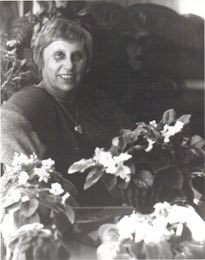
Ella Grasso
First woman elected a state governor in her own right. Grasso was elected Governor of Connecticut in 1974, serving until illness forced her retirement in 1980. She was also a Congresswoman and advocate for women, minorities and the elderly.
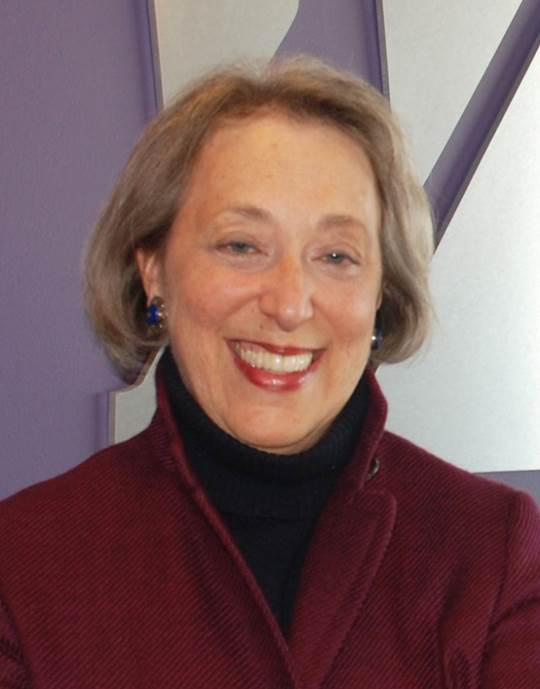
Marcia Greenberger
The founder and co-president of the National Women’s Law Center, Marcia Greenberger has been a leader in developing strategies to secure the successful passage of legislation protecting women and counsel for landmark litigation establishing new legal precedents for women.
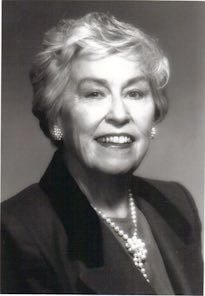
Martha Wright Griffiths
Congresswoman from Michigan 1955-1975, best known for successfully adding sex discrimination as a prohibited act in the 1964 Civil Rights Act. Griffiths also successfully led the Equal Rights Amendment passage in the House of Representatives.

Katharine Graham
As publisher and then Board Chair and CEO of the Washington Post, Graham became one of the most influential women in the country. Her courageous decisions to publish the Pentagon Papers and to proceed with the Watergate investigation earned her a reputation as a daring and thorough journalist, willing to take risks in order to give the American people full access to important information.

Martha Graham
One of the greatest artists of the 20th century, she created a new dance language. Named Dancer of the Century, she was the first dancer to perform at the White House and to act as a cultural ambassador abroad.

Temple Grandin
An animal sciences innovator and champion of farm animal welfare whose masterly designs for livestock handling systems transformed the industry and are used worldwide today. Her life and work have “revolutionized the study of autism,” as she had applied her insights gained from her own experience with autism to conceptualize equipment that reduces animal stress during the livestock handling process.

Ella Grasso
First woman elected a state governor in her own right. Grasso was elected Governor of Connecticut in 1974, serving until illness forced her retirement in 1980. She was also a Congresswoman and advocate for women, minorities and the elderly.

Marcia Greenberger
The founder and co-president of the National Women’s Law Center, Marcia Greenberger has been a leader in developing strategies to secure the successful passage of legislation protecting women and counsel for landmark litigation establishing new legal precedents for women.

Martha Wright Griffiths
Congresswoman from Michigan 1955-1975, best known for successfully adding sex discrimination as a prohibited act in the 1964 Civil Rights Act. Griffiths also successfully led the Equal Rights Amendment passage in the House of Representatives.
